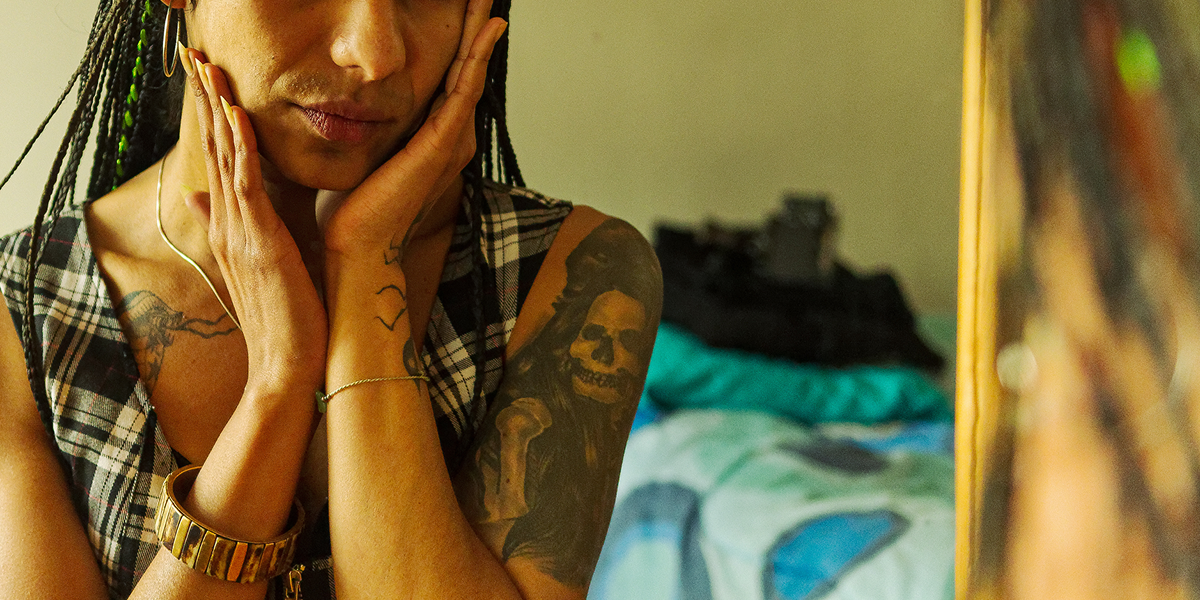There could be a lot of effective ways to say this, but I’m just going to go the quick route: my name is Carmen Rios, I’m Latina, and I’m a lesbian.
As a feminist, I’ve become aware of how my unique identity impacts my experiences. It’s pretty much a no-brainer that Latina women face challenges unique to the intersection of race and gender that they live at, or at least it should be by now. But what happens when you throw in the ‘LBT?’ Or, really, what happens when it comes to sex at all?
The National Latina Institute for Reproductive Health (NLIRH) recently released an issue brief on sexual health and LGBTQ Latinas. The outlook was not too bright: the conclusion of the brief was, pretty much, that more research on the unique needs of Latina women on a whole is needed to address their unique sexual health needs. But what the brief also reveals is a handful of problems that LBT Latinas are facing: provider bias and limited access to quality health care, a lack of accommodations for queer women and non-English speakers in health care, higher rates of cervical cancer, and lower rates of regular care for lesbian Latinas related to sexual health.
The report, LGBTQ Latin@s and Reproductive Justice, can be found in full on the NLIRH website. It also explored how trans women face problems related to the gendering of health services and employment discrimination, both having an ugly impact on the opportunity to receive quality health care. Verónica Bayetti Flores authored the report, and said:
What this analysis shows is that finding providers that are adequately competent in and sensitive to the linguistic, cultural and particular health needs and concerns of the LGBTQ community can prove exceedingly difficult. Yet preventive health care is vital for keeping Latinas healthy and safe.
“This report makes crystal clear that we need to be doing more to represent the needs of all Latinas, without regard to sexual orientation, gender identity, or immigration status. NLIRH is calling on activists in the reproductive health and immigration movements to recognize the critical intersections on theses issues for the people they serve.
The problem facing the Latina community is not just the silence of researchers, but of an entire culture. Latina culture is very traditionally Catholic, and a lot of times discussion of reproductive and sexual health doesn’t get too far with these specific populations, especially if their healthcare provider isn’t aware enough to navigate the cultural values around those discussions. But it is necessary. And Latina populations are open to having a discussion, if the healthcare network is willing to meet them halfway.
So far, though, a significant part of the discussion is this billboard:
Effectively ending the discussion on reproductive justice for Latina women, The Latino Partnership for Conservative Principles got behind the anti-gay American Principles Project to create divisive scare-based ads against reproductive choice. The billboards contain photos of small babies and the text “The most dangerous place for a Latino is in the womb.” Sounds like the Partnership is a great, non-judgemental, and non-partisan source of sexual health information and resources! (In more depressing news, the Governor of Puerto Rico sits on the Partnership board.)
It should be obvious why this is an unproductive and unhelpful “conversation” to be having in light of NLIRH’s report – not only does it render LBT Latinas invisible by centering the discussion on pregnancy, but it tries to make the issue of overall poor reproductive health options for Latinas into the something that’s their own fault. There’s nothing “dangerous” about a Latina’s womb, and her choices about reproductive health aren’t a threat to anyone – what’s dangerous and threatening is a healthcare system that lets women of color remain underserved and overlooked.
The sexual health needs of LBT Latina women are unique, and are being ignored. And the Partnership is using racism, homophobia, scare tactics, and divisive cultural politics to keep it that way. This is, to say the least, not a recipe for high-quality healthcare. The last time these boards were spotted, they targeted black communities. This time, Latinas are being used as bait to attract people to the anti-choice political movement.
There’s now an explicit demand for a conversation on the sexual health and reproductive rights of Latina women in the United States – both documented and undocumented. How can we have this conversation and make sure it’s inclusive? And why can’t our own community work with us to get there?








